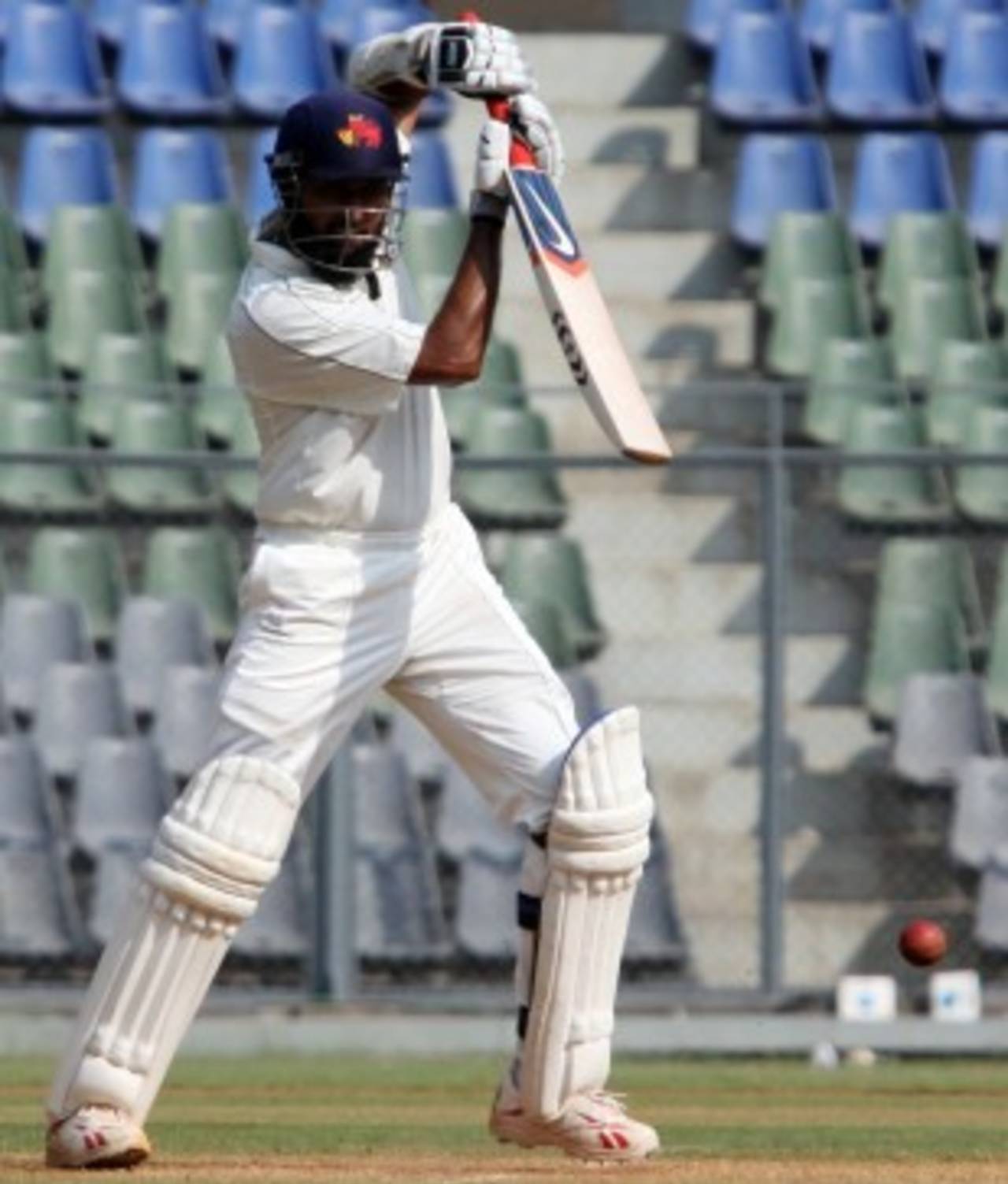New schedule, same malaise
The game was dead when the overnight batsmen came out to bat on the final day
Siddhartha Talya in Mumbai
10-Feb-2013

Wasim Jaffer scored a century on the final day but a late declaration from Rest of India had killed the game • Fotocorp
The Irani Cup this season was supposed to be different from some years past. The players welcomed the switch to play the Irani Cup as the last game of the first-class season, with Rest of India taking on the domestic champions just days after the Ranji Trophy final. The administrators talked it up, and that this game was the final first-class match ahead of the Australia Tests added to the build-up. As events unfolded, there were big smiles, some of those in contention for selection having made an impression, but the game itself, comprising some of the best players in the country, was the same dispiriting, high-scoring, enthusiasm-sapping draw that has been the bane of first-class cricket in India.
The quality of pitches on offer over the years in Indian first-class cricket have rightly been criticised, but players haven't done much either to change things. This Irani Cup game is a prime example. Once Mumbai conceded the first-innings lead, they had every reason to be more aggressive in the second innings, try their best to give themselves a chance of fighting back to win a title they haven't won since 1997-98. Instead, despite picking up three wickets relatively early, it seemed they had given up hope after lunch on the fourth day.
Abhishek Nayar, leading Mumbai for the first time, took himself out of the attack at a time when he had the wood over Manoj Tiwary, and consigned Mumbai to their fate with 52 overs of harmless spin. Dhawal Kulkarni, whose name has figured as a possible Indian pace option, didn't bowl an over after lunch.
Tiwary, Ambati Rayudu, and Suresh Raina smashed Ankeet Chavan and Vishal Dabholkar for 10 sixes, erased any pressure and all but ensured the title for their team. During the Ranji Trophy, such lack of intent, as Mumbai showed, is partly understandable, given the short window between matches, and the need to retain fast bowlers. But not in a one-off game having conceded a lead, with no fear of fatigue.
"At that point, I had already bowled eight overs into the spell and sometimes it takes a toll on your body," Nayar said after the game. "The bulk of the bowling was done by the fast bowlers [in the first innings]. So at some point the spinners had to put their hand up and bowl for us. At that point, the ball was swinging a lot and I thought I should have come on to bowl but I felt then that the spinners should have done the job for us." Fifty-two out of 60 overs after lunch, a span that just produced one wicket, on the fourth day was really pushing it.
Rest of India did what most teams in the Ranji Trophy would have done. Having gained a lead of 117, they batted out Mumbai, and sealed an eighth straight Irani Cup title. They gave Mumbai 63 overs - the game was eventually called off with nine overs still remaining - to bat, hardly enough time to bowl them out with the batting team under no pressure to score, thereby reducing any serious chance of getting wickets. You would have been tempted to think the Irani Cup this year should prompt a different approach. Harbhajan Singh, Sreesanth, Ishwar Pandey, and Abhimanyu Mithun, all in contention for Test spots, should have been doing their best to impress the selectors, particularly after a first-innings performance during which they rarely troubled the batsmen, who dug their own hole for the most part.
Sporting declarations are a rarity in Indian cricket, but there was a compelling case for one in this match, not just to press for selections but win the title outright. The game, though, was dead when overnight batsmen Ambati Rayudu and Suresh Raina came out to bat on the final morning. Harbhajan defended the decision, saying the pitch was a difficult one on which to bowl a side out. "This is the kind of a match, where you know that if you take the first innings lead, you will win the game."
The malaise is a result of a trend that's led to second-innings runs on the domestic circuit being increasingly devalued, with a first-innings lead reducing the remainder of the game to a virtual non-event. The Irani Cup, much as the first Ranji game this season between Mumbai and Railways, had plenty of star value and was happening at a time when selectors were about to pick India's squad for a major series. Here, the incentive to deliver was greater for bowlers competing for a place in an India attack that is an open field, with the Test 12 days away, and the teams generally in what was a one-off game. But Mumbai and Rest of India each played their part in undermining its significance.
Siddhartha Talya is a senior sub-editor at ESPNcricinfo